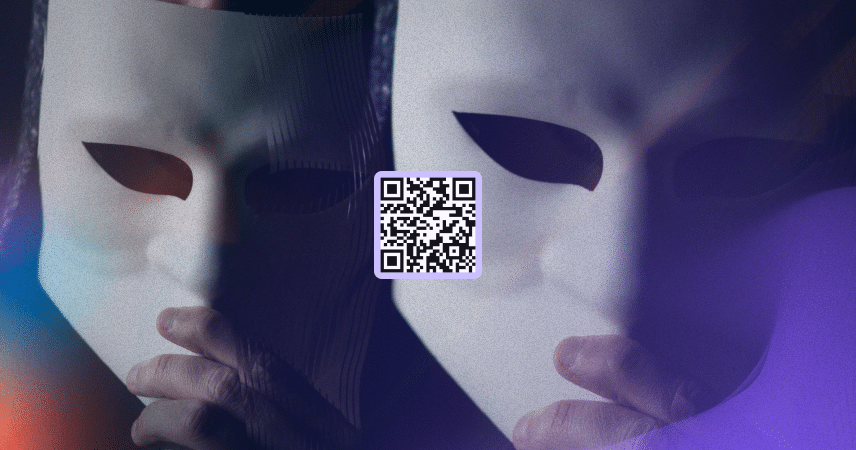What is Catfishing? Fake Identity Warning Signs

As long as the internet has existed, people have “embellished” their personal details online. Sometimes, that’s relatively harmless. Maybe they just take on a slightly bolder persona or add some unverifiable details to their social media profiles. After all, you can be just about anybody on the internet.
Then there are times when those exaggerations are targeted at a single person with the intent to mislead them. That trend is more common than people realize. It’s even been given a name, catfishing. Let’s get into what catfishing is, why people do it, and how you can stay safe from people who forge a fake identity online.
What Does it Mean to be Catfished?
Catfishing is a dedicated effort to create a false identity online to get another person to start a romantic relationship with that manufactured identity. To do that, they may create a fake name, and upload fake photos or videos. These may be manipulated with editing software or use AI. Some people engaging in catfishing will use stock images.
Sometimes, catfishing involves an entirely fictional identity. Other times, they may steal another person’s photos and name to pretend to be them.
Who Gets Catfished?
That depends on the motivations and goals of the person doing the catfishing. Some catfishers cast a wide net. Their only goal is to target people who will take their bait. So, they create a fake profile that is most likely to appeal to as many people as possible. Think, attractive, single, successful, and fun! They may pursue as many relationships as possible.
Many catfishing cases target a single person or a single kind of person. Depending on the reasons people catfish, their intention may be to trick people who meet certain criteria. For example, closeted gay men or older women with low self esteem are often victims of catfishing.
If you are a victim of catfishing, it’s also possible that someone targeted your dating profile specifically. Even before they decided to create that fake account and new identity, they decided that they wanted to fake an online relationship with you specifically.
What Catfishing Is Not

Sometimes, people are too quick to accuse others of catfishing, or to think they have been catfished when that isn’t the case. To be clear, catfishing is not slight exaggerations in a person’s identity online. You have also not been a victim of catfishing when another person doesn’t match your manufactured expectations. For example, a guy hasn’t been targeted for a catfishing scam just because the person he meets in real life may have gained 15 pounds since they took their profile picture or they don’t wear makeup every day.
Also, sometimes relationships that begin online just don’t work out in the end. That is disappointing, but a person who lets you down hasn’t necessarily been catfishing you. Some people are quick to claim romance scams when the other person simply didn’t want to be with them anymore. To be clear, nobody owes you a relationship or access to their body simply because you have feelings for them. This is true, even if you have sent gifts, intimate images, or money to them.
Why do People Use Online Accounts to Catfish?
It’s common to exaggerate somewhat on social media accounts, but catfishing takes things to a whole new level. They aren’t fudging a few details. They are becoming an entirely fake person online with the purpose of getting somebody to fall for their stories, and fall in love with the image they have created.
Financial Gain
Many people engage in catfishing as a way to obtain money and gifts. Some will use social engineering to get their targets to send these things freely. They may share stories that make them seem vulnerable or in need. They might promise things in return such as intimacy or spicy pictures.
Some people catfish others to draw them into financial scams. They may get a person to fall for them and then pressure them into making investments or loans with a promise of more money later.
Then there’s the matter of blackmail. If catfishing romance scams lead a person to do things that are illegal or embarrassing, the catfisher may try to extort money from them in exchange for their silence.
Insecurities About Their Life or Appearance
This is probably the most common reason for catfishing. While it is wrong to be fake and conceal their real identity, many people simply feel bad about themselves. They may even struggle with mental illness. They don’t like who they are or how they look, so they obscure their true identity.
Does this make catfishing okay? Absolutely not! A person’s struggles with self-esteem don’t take the harm they do away. Catfishing can do real damage to the other person’s mental health and ability to trust others. We can have some empathy and understanding, but catfishing leads to harm, and people should be held accountable for that.
Struggles With Gender Identity or Sexual Preference
When a person is struggling with shame, fear, or uncertainty about their sexual preference or gender identity, they may not want to be themselves online. Instead, they’ll adopt a persona that allows them to interact with others as the person they wish they could be in real life.
Is this catfishing? That depends. There are valid reasons for people to choose to stay in the closet. There’s also nothing inherently wrong about exploring, or even role playing. That said, the moment there is a targeted effort to make somebody believe they are in a relationship with a real person, then it’s catfishing, and that’s wrong.
Revenge
Yes, catfishing can be motivated by revenge. Most people handle things like rejection or disappointment gracefully. They process their emotions, find support from friends, go therapy, and get over it. Others decide to take their frustrations online and use catfishing to get people back.
Revenge catfishing might be targeted at an entire group of people. For example, a bitter, angy man may pretend to be a lesbian online to victimize women who will never be attracted to him. In other cases, catfishing is used to exact revenge on an individual. One common example of this would be young people using a fake profile picture and biography on a dating website to get back at somebody who cheated on one of their friends.
If there’s been abuse or other mistreatment, it can be extremely difficult to blame people for catfishing this way. It’s easy to understand why somebody might do things that are pretty extreme if one of their friends has been hurt. Still, there are healthier ways for young people and others to support those friends.
Harassment or Bullying
Some people are just mean and they will use their social media accounts to hurt others. They may not have any other goals other than to make people feel bad. To them, faking an identity, make up stories, and leading somebody along is a source of entertainment. They enjoy creating chaos online and offline. They think it’s funny to fool another individual and make them feel bad.
Am I a Victim of Catfishing? Signs to Beware Of
You’ve started talking to someone on social media or a dating app. Everything about them seems amazing. In just a short period of time, you’ve caught feelings. Is this too good to be true? Here’s how to tell if your online connection may be using a falsee identity or account.
They Have Only a Few Pictures or Their Pictures Are Suspect

It takes some effort to find or fake photos. So, people who engage in catfishing often have very few photos on their dating profiles or social media accounts.
Sometimes, those photos indicate a huge red flag. For example, if all of their photos seem posed that should raise concern. The same is true for images that are just too perfect. Think about it. Most of us share images that include pictures with friends and loved ones, activities, and even images that look silly. Someone who is catfishing often wants to carefully curate a very attractive persona. So, they hand pick images that align with that.
Fortunately, there’s a way to investigate this. It isn’t perfect, but you can try a reverse image search on some of their photos. If you find those images on stock photo sites or another individual’s website or social media, you may be talking to a scammer.
They Don’t Want to Meet Up or Video Chat
If somebody avoids any offer to reach out via video call or meet up offline, they might be shy or have poor self esteem. Then again, that refusal to give you further access could be because the images they share online doesn’t match what they look like face to face.
Should you end a relationship because somebody isn’t ready for a video call or video chat? That depends. There are legit reasons to put that off. Somebody may have safety concerns. They may want to take things slow and keep the relationship online. It’s up to you to decide if yo are willing to wait or if you think they have something to hide.
Very Few Friends or Followers on Social Media Platforms
When a scammer creates a fake account for catfishing one of the easiest signs to identify if a lack of friends, followers, or family members. Conversely, they may have several connections, but take a closer look. Do most of the accounts that follow them seem to be bots, internet models, or sketchy influencers? That’s sus. Not everybody has many friends online, but the ones they do should seem authentic.
Also look at their online convos and other engagement. Do people like and comment on their posts? Are they chatting with others in a way that seems normal? These are signs that you are dealing with somebody who is real.
Stories Don’t Add Up
Catfishing is all about hiding who you are and creating this online personality that you can use to mislead people, engage in illegal activity, and often get money or gifts from people. If you’ve ever told a lie before, you know how much effort it can take to keep up the deception.
Inevitably, people who are catfishing can’t stay on top of those lies. The more they keep talking, the more the cracks in their facade begin to show. Look for those inconsistencies. Compare what they say in chat to the things they share on their profiles. You may see signs that things just don’t add up.
You Just Have a Sneaking Feeling
It’s so important for people to follow their own instincts. Too many folks, especially young people ignore those feelings. Even if no other signs exist, it’s okay to step away if a relationship doesn’t feel right.
In fact, young people are often targeted because they haven’t learned to trust their feelings. This is why publications like Teen Vogue have published articles about catfishing.
Tips to Protect Yourself From Catfishing Scams
Protect yourself, your money, and your sense of security by learning these tips on catfishing.
Don’t Overshare
Scammers often look for vulnerabilities and useful information. They will use carefully review the information you share online and in messages for signs that you are a good target. For instance, sharing that you just came into money could draw these people to you. So can messages where you reveal you are desperately lonely.
Wait to Send Gifts – Never Send Money
Don’t allow your social awkwardness, loneliness, or newness to online dating make you a mark. Many folks are duped into sending catfishers money or luxurious gifts because they are lonely, because they think it will entitle them to intimacy, or because they just think that’s how dating is supposed to work.
That isn’t how dating works. Normal people in a relationship don’t give one another money or constantly send extravagant gifts, especially not early in a relationship. Wait until you know the individual, and then focus on thoughtful presents.
Take Things Slowly on Dating Apps
Slow down! If you are feeling thirsty or don’t have many friends, you may be desperate for companionship. That can lead you to accepting mutuals and starting relationships with people who have bad intentions. Spend time talking to people before you get into trouble.
Someone’s Been Catfishing You – Now What?
There are steps you can take to protect yourself when you realize that somebody you’ve been talking to is a scammer.
Block Them on All Social Media Accounts
Don’t give second chances. Don’t tell them how you feel. Don’t attempt to get back at them. Just block the scammer on every platform.
Check And Freeze Your Credit
If you have shared financial information or sent cash, check your credit right away. Even better, freeze it! Consider cancelling and replacing your cards as well.
Report Illegal or Fraudulent Activity
Don;t let them get away with it. Report catfishers to authorities if they have broken the law. At the very least turn them over to customer support. That way that can’t use that platform to victimize others.
Be an Educated Consumer
Further your education. To learn more about online safety, look into resources like the Cybersmile Foundation.



